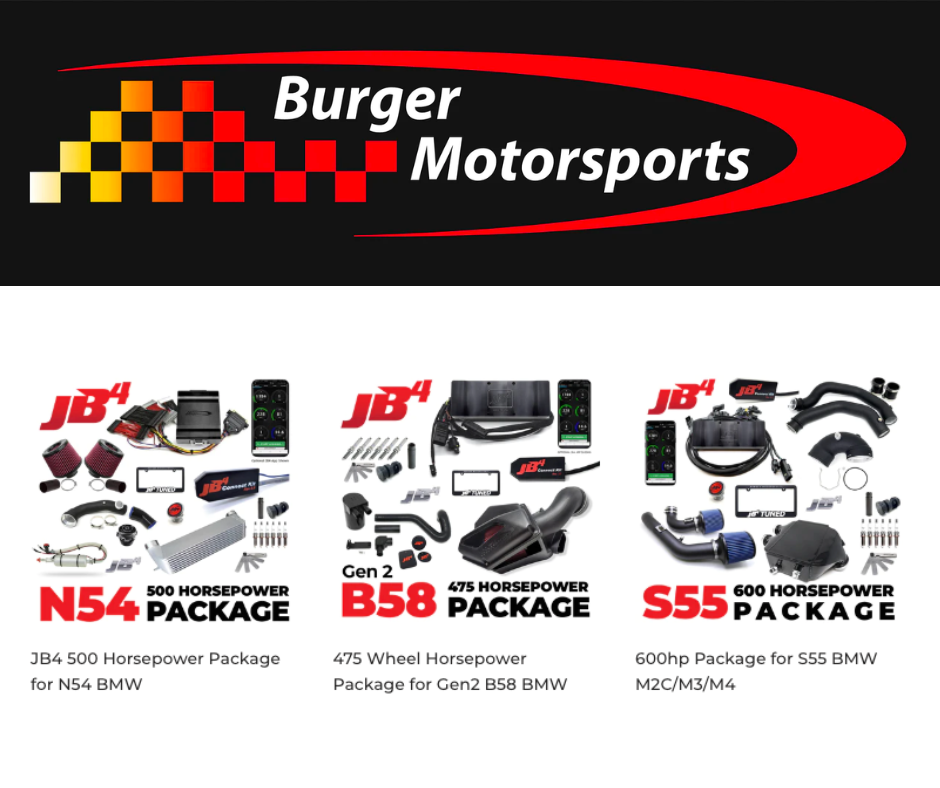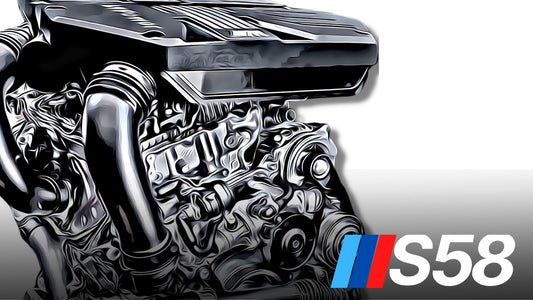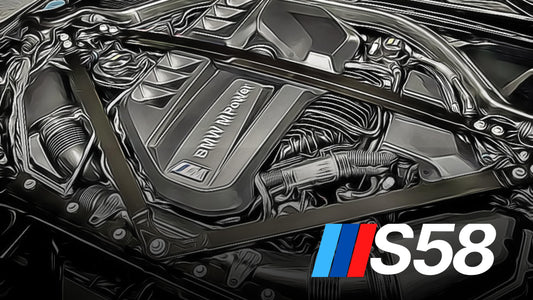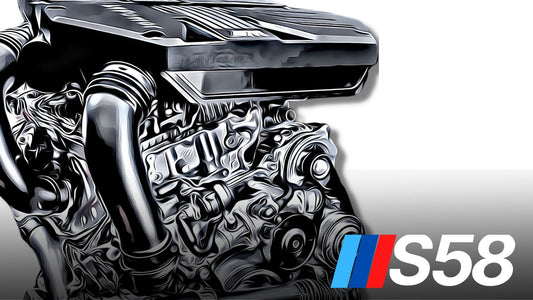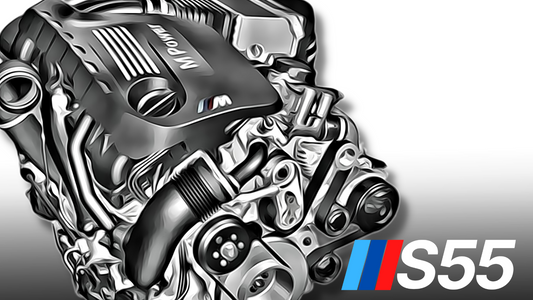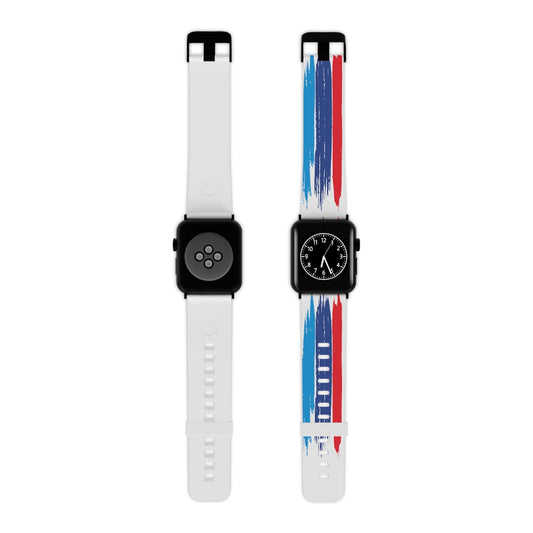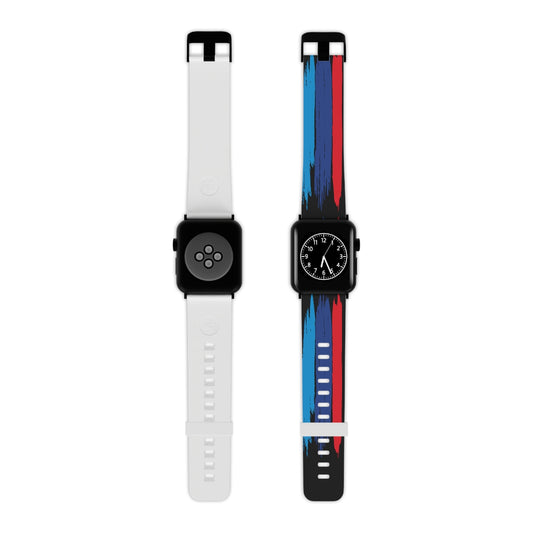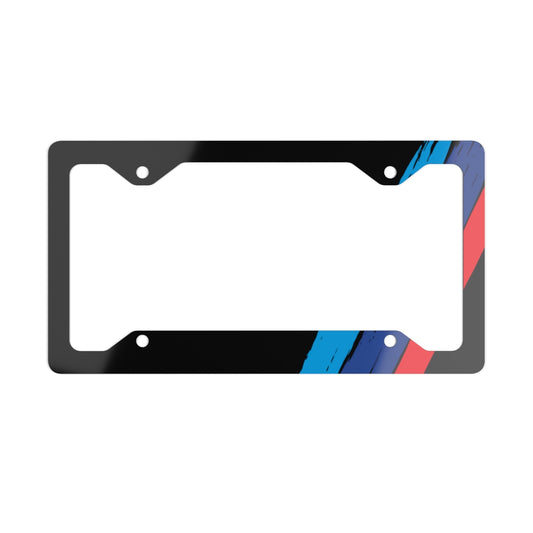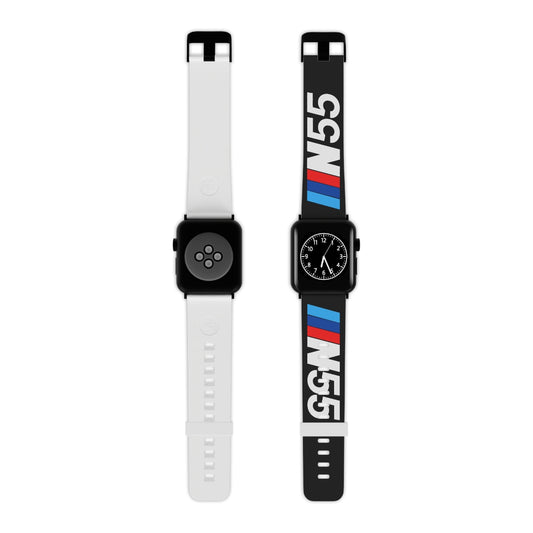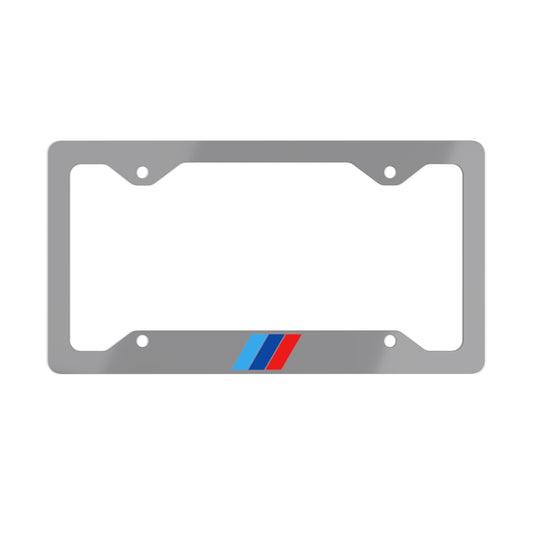Discover the iconic BMW N54 engine. N54 engine issues, specifications, dependability, tuning, modifications, and more. Guide to the BMW N54 3.0 twin turbo.
The BMW N54 engine first appeared in the 2007 E90/E92 335i. It was then used in a number of additional models, including the 135i, 535i, and Z4. The 3.0L inline-6 direct injection twin turbo engine was a completely new path for BMW at the time. In the early days, the new design also revealed a number of persistent issues.
What BMW Models Use the N54?
- 2008-2010 135i (E82/E88)
- 2011 1M Coupe (E82)
- 2007-2010 335i (E90/E92/E93)
- 2011-2013 335is (E92/E93)
- 2008-2010 535i (E60/E61)
- 2008-2012 740i (F01)
- 2008-2010 X6 xDrive 35i (E71)
- 2009-2016 Z4 sDrive35i (E89)
- 2011-2016 Z4 sDrive35is (E89)
The BMW N55 engine primarily replaced the N54 engine for the 2011 model year. However, the original 3.0L inline-6 is still used in select high-performance vehicles. The earlier N54 was still used in the 2011 1M, 2011-2013 335is, and 2009-2016 Z4.
BMW N54 Engine Specifications
The BMW N54 inline-6 twin turbo engine specifications are:
| Engine | BMW N54 |
| Configuration | Inline-6 |
| Displacement | 2,979 cc (3.0L) |
| Aspiration | Twin Turbo |
| Block/Head Material | Aluminum, Open-deck block |
| Internals | Forged crank & rods. Cast pistons |
| Valvetrain | DOHC, 24 valve, VVT |
| Bore x Stroke | 84mm x 89.6mm |
| Compression Ratio | 10.2 : 1 |
| Redline | 7,000 RPM |
| Horsepower | 300-335 HP |
| Torque (lb-ft) | 300-332 lb-ft |
The BMW N54 engine is a twin turbo, direct gasoline injection design. This is BMW's first mass-production engine to incorporate this technology. An aluminum open-deck block and aluminum head aid in weight reduction. A forged crank and rods provide exceptional strength.
When combined with DOHC and variable valve timing, the N54 is capable of a 7,000 RPM redline. It also produces 300-335 horsepower from the factory. It is widely assumed that the engine was underestimated and could produce an additional 20-30 horsepower.
Small stock turbos, a longer stroke, and somewhat high compression allow for tremendous low-end torque. It's an area where the N54 shines, making it a lethal engine in roll races.
A Detailed Look At The BMW N54 Engine Specs
At first glance, the N54 specifications aren't the strongest. An aluminum open-deck block is not appropriate for high power and boost. However, the N54 block performs admirably up to 750whp. The power potential is a remarkable accomplishment given the specs.
The BMW N54 has a pretty hefty, forged crank. So far as we know, no upgrades exist, and none have ever failed on their own (rod bearings can ruin the crank if they go bad, though). The rods are likewise forged, but nothing extraordinary. Pistons are cast yet remain rather powerful.
N54 Tuning, Performance, and Upgrades Potential
Tuning and modifications for the BMW N54 engine are extensive. This is where it truly shines as a fantastic engine. Although less remarkable by current standards, the N54 can still compete with some of the best modern turbo engines.
Prior to 2010, it was difficult to locate many other engines that could produce 70-100+ horsepower with a simple $500 tune. Add some basic bolt-ons and you've got a 500+ horsepower N54 for under 1.5k. Do you want to go any further? The BMW N54 can do that rather effortlessly.
Tuning The BMW N54
The cornerstone for creating extra power with the 3.0 inline-6 twin turbo engine is a tune. On an otherwise stock engine, a simple tune like the N54 JB4 may provide 70-80whp. With no further modifications, 100+whp improvements are attainable with a little E85 mix like E30 fuelling. Then, as we'll see in a moment, additional modest N54 enhancements open even more possibilities.
MHD flash tunes are another excellent off-the-shelf tuning solution. To maximize the factory turbos, combine a JB4 tune with an MHD back-end flash.
Upgrades to the 3.0 Twin Turbo Engine
Those wishing to update turbos or push the limits might explore bespoke tuning. The JB4 with a back-end flash can handle 300-700+whp. A bespoke tune, on the other hand, can help extract a bit more power. Above 500-550whp, we strongly urge specialized tuning.
Regardless, the BMW N54 is capable of exceeding 1,000whp. Let's make a decent plan for improving the BMW N54 engine.
N54 Basic Bolt-On Modifications (375-425whp)
The N54 engine produces 375-425whp with easy bolt-ons. It's a solid range where you're not putting too much strain on the OEM turbos. You'll be able to put the power down rather nicely with a solid pair of summer tires. Overall, this is a highly enjoyable, practical build for daily driving or weekend trips.
The following is a list of modifications to achieve 375-425whp:
- JB4 or MHD tune
- Dual cone intake
- Downpipes
- FMIC
- Charge pipe & BOV
- E20 or E30 fuel blend
Intakes help to get more air in, while downpipes help to get more air out. An FMIC is not necessary for small boost, however it is an excellent N54 improvement for consistent performance. All of these modifications will produce around 375-400whp. If you add a tiny amount of E85, you should be able to push into the 410-430whp region.
Increasing the Output of Stock Turbos (440-500whp)
On the top end, stock turbo N54s may produce 490-500whp and 525-540wtq. Not everyone will see such remarkable outcomes. Turbo lifespan is also an issue. It's not a big problem if you're going to upgrade anyhow. Regardless, start with the preceding modifications and keep the following in mind:
- JB4 + MHD BEF or custom tuning
- N20 TMAP (to run 20+psi)
- Turbo Inlets & outlets
- LPFP upgrades
- Water-Methanol injection
To get into 440+whp region, you'll need plenty of gasoline. We choose BMW N54 LPFP modifications for E50+ fuelling. However, some people choose to use WMI instead. You may also run both for the best results.
Turbo inlets and outlets provide a lot of power and torque. They also make the turbo's work simpler by increasing air-flow volume at lower PSI. In essence, N54 inlets and outlets aid in the reduction of waste-gate duty cycles.
Turbo Upgrades for the N54 "Conservative" (450-600whp)
When you hit the limitations of the standard turbos (or blow them up pushing the boundaries), it's time to consider turbo upgrades.
Up to 600whp is a fairly safe range for the N54 engine. It can handle more power with the correct turbos, calibration, and feeding, among other things. However, we really enjoy the N54 in the 500-600whp range. You should think about all of the preceding modifications, as well as some extras:
- Port fuel injection
- Limited slip differential (LSD)
- Wheels & tires
- Suspension upgrades
If you want an incredible set-up, you can go even farther with N54 upgrades at this power. Some items, however, are not absolutely necessary. Budget builds under 600whp are a feasible alternative that still ensures you're doing things properly.
Pushing The Boundaries (650-1,000+whp)
This is a shorter segment since it is too long to discuss in this article. A few dual turbo improvements can produce around 650-725whp, but that's about the current maximum. Most N54s, in our view, are best suited to a single turbo conversion producing 650+whp.
It's also time to think about more significant and costly changes, such as a custom motor. For lifespan concerns, 650-700whp is beginning to test the upper limits of the N54. The biggest problem with this power is rods, rod bearings, and pistons.
You'll also require costly port injection improvements, and other things will become more important. Without a solid wheel and tire setup, getting power down will be difficult. It's probably time for a 15" conversion in the back, and the list goes on.
Common BMW N54 Engine Problems
However, the N54 retains a strong reputation in the tuning and upgrades community for good cause. Even at 500-600whp, internal engine problems are uncommon. Let alone on a standard or simple bolt-on upgrade N54.
In general, the N54's internals are quite dependable and long-lasting. Heads do not rise. Head gaskets never leak. There are no issues with the valvetrain. There are no problems with the BMW N54 rods, bearings, pistons, or crankshaft. Natural and random failures do occur from time to time. Poor tune, alterations, or straining the N54 engine limitations can all cause problems.
- Rotating assembly / Cylinder head
- Timing chain
- Index 11 & 12 injectors
- Updated HPFP's
But don't let it detract from the purpose. Internally, the N54 is a very good motor. It is one of the most well-known tuners engines. A lot of things around the engine are troublesome, but the engine itself isn't a huge issue.
Common N54 Engine Issues
- Cooling System
- Oil Leaks
- Fuel System
- Turbocharger System
- Other Misc. Problems
1. BMW N54 Cooling System Failures
While the concerns listed above are not in any particular sequence, the cooling system is an excellent place to start. The cooling system as a whole can be troublesome. Water pumps frequently fail between 60,000 and 100,000 km. Some fail by 40,000 miles or less. There is no long-term remedy, so get used to dealing with the water pump and t-stat on a regular basis.
The BMW N54 radiator, expansion tank, and coolant lines are also included. All of them are prone to breaking and leaking. When the OEM N54 radiator dies, CSF provides an all-aluminum radiator that is an excellent replacement.
Finally, there is the electric cooling fan, which is prone to failure. It is certainly less often than the other cooling system issues, but it does occur.
2. Endless Oil Leaks
Okay, maybe they aren't actually infinite. However, a number of BMW N54 gaskets are prone to leaking oil. Many of these appear between 50,000 and 80,000 miles. Some don't even make it that far. The three main oil spills are:
We strongly recommend replacing the whole oil filter housing and valve cover on high mileage instances. You might be able to get away with merely gaskets, but labor is a significant portion of the repair price. Do it correctly and spend a little more on components for peace of mind.
Simply replacing the gasket on the N54 oil pan is sufficient. It takes a lot of effort to remove the subframe for the oil pan gasket. Consider alternative items to replace while it is out. Transmission and engine mounts, as well as subframe bushings, are all good ideas.
3. N54 Fuel System Problems
Much of this is no longer a concern in current times. Many N54s already have the upgraded HPFPs, which are rarely defective. They still fail from time to time, but it is lot less of an issue than it was in the beginning.
Then there's the matter of the fuel injectors. An N54 with index 11 or 12 (12 in an ideal world) is a HUGE discovery. If you buy fresh, a set of 6 injectors will cost you around $1,400. Index 12 injectors flow really well and have virtually no difficulties.
The LPFP EKP module is a source of worry for those updating the N54 fuel system. LPFP improvements draw greater current, which may create problems with the EKP. Otherwise, the LPFP can have problems, although they are infrequent. We ran 425+whp on a factory LPFP for nearly 7 years and 40,000 miles on 30-40% E85 with no problems.
4. BMW N54 Turbocharging System
This point takes into account all charge pipes, FMIC, boost solenoids, boost leaks, turbos themselves, and so on. The first topic to cover is waste-gate rattling in N54 turbos. For this issue, BMW provided an extended warranty of 8 years and 82,000 miles. Even brand-new turbos can rattle. It normally has little to no effect on life expectancy.
However, N54 standard turbos do fail naturally. They're normally exhausted after 100,000 miles or so, but they can still run for a while. The majority of failures are caused by excessive boost and/or boost leakage. If you find yourself in this situation, consider turbo improvements.
Sometimes boost solenoids fail, however this is not very often. Boost leaks are another issue, and the charge pipe, which is prone to breaking, is a big offender. Consider aluminum charge pipe modifications, as well as the addition of a BOV for added noises and enjoyment.
5. Other N54 Engine Issues
A large portion of this is either routine maintenance at high mileage or uncommon breakdowns. Here are some other N54 faults to consider:
- Drive belt
- O2 sensors
- Vanos solenoids
- Sensors
- Carbon build-up
Again, this is not a complete list. Let's talk about the N54 drive belt for a minute. Replace the drive belt every 6-8 years or 80,000-100,000 miles. It's routine maintenance. If the belt breaks, it may be dragged through the front crank seal. That's not good. Some full engine failures occur as a result of this, although they are uncommon.
Then there's the routine maintenance for high-mileage vehicles. We're talking about an engine that's between 12 and 15 years old. O2 sensors, VANOS solenoids, and other components With that type of age, sensors can fail. This is especially true at 120,000 miles or more.
The final step is walnut blasting. Every 70,000 to 100,000 miles, the intake valves should be cleaned. It won't harm to start sooner. It's less of a problem if you're aiming for large power and adding port injection fuelling enhancements.
To Summarize
Unless you're pushing 550-600whp, internal engine problems are uncommon. Random failures occur, but this is true of every engine. Even with considerable power increases, this is a very proven motor that can operate for 200,000 miles or more.
However, the surrounding environment isn't quite as wonderful. By the time you reach 200,000 miles, you may have spent far more money on maintenance than the car or engine itself is worth. The N54 is ideal for the do-it-yourself population. Many of the parts are inexpensive.
If you take everything to a repair shop, your expenditures can quickly mount up. A $50 oil pan gasket, for example, can cost between $600-1,000 in labor. A $400 water pump might cost an additional $400-600 in labor. The list could go on and on, but the point remains. Going to a repair shop might increase the cost of owning the N54.
Reliability Of The BMW N54
Everything in and around the engine is to blame for BMW N54 dependability. It's far simpler to declare what isn't a problem than it is to go through the laundry list of problems. Oil leaks and cooling system issues are all too typical. Injectors and HPFP both experienced early issues that were costly to remedy. Turbos may fail, necessitating yet another costly update or repair.
Finally, with all of the appropriate effort, the N54 can be dependable. However, doing that service in a repair shop is costly. BMW N54 engines might be an excellent buy for people who are ready to do their own repairs. Or, at the very least, study overlapping labor items so you may accomplish things ahead of time and avoid duplicating repair expenditures later on.
How much does it cost to own a N54?
A lot of items influence the cost of owning a N54 to provide an exact figure. It varies from case to instance, but we'll try our best to provide an estimate. If you want a long-term dependable N54, you'll have to put in some effort, especially given the age of these engines. Here's what we'd do:
- Index 12 injectors - $1,400+ new
- Valve cover - $300-500
- Oil filter housing - $350-500 (walnut blast while replacing)
- Oil pan gasket + bolts - $50-75 (consider engine + trans mounts, subframe bushings)
- Water pump & t-stat - $450-600
- Expansion tank - $60-150
- Drive belt kit - $150-200
- Turbos - $1,000-3,000+
- O2 sensors - $400-500
While you are working on a particular area of the engine be sure to replace inexpensive, worn-out items like coolant hoses and vacuum lines.
We may be missing a few minor pieces, but this is the essentials. Some pricey faults, such as N54 turbos or fuel injectors, are probably best addressed when they occur. You may use the same strategy to any of the items on the list.
You may, however, be left stranded on occasion. If you want a more dependable N54, do a lot of this as preventative maintenance. Only parts prices are indicated above, so consider labor if you are unable or unable to DIY. That's when performing preventative maintenance with overlap in labor comes in handy for saving money.
In Summary
For good reason, BMW N54 engines are renowned in the aftermarket and tuning industry. This 15-year-old 3.0L inline-6 twin turbo engine can compete with some of today's top engines. The N54's specifications are nothing exceptional on paper, yet it delivers in practice. Few engines can accomplish so much with so little.
A few easy improvements and adjustments may boost the N54 to 400whp or more. With a few modifications, standard turbos can produce up to 500whp and 540wtq. The N54 may also compete with owners who desire even greater power. The BMW N54 can produce 700whp with twin turbo improvements, and 800-1,000whp with single turbo conversions.
All of this comes with a significant negative. Almost everything in and around the N54 engine can be troublesome. Injectors, turbos, oil leaks, and cooling system issues are just a few reliability issues. Fortunately, even at 500-600whp, the engine is quite robust and dependable.
The N54 engine is primarily responsible for the creation of this blog. It will always be remembered for its achievements, particularly on the outstanding E chassis. The N54, on the other hand, is not for everyone. Don't be fooled by the low first purchase price. The BMW N54 is a gorgeous engine, but it will have you beating your head against a wall on occasion.


